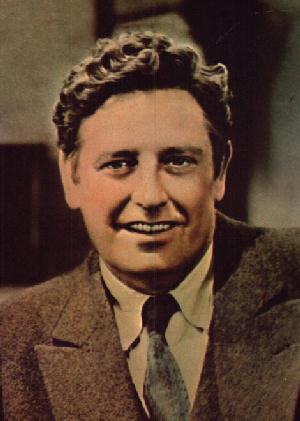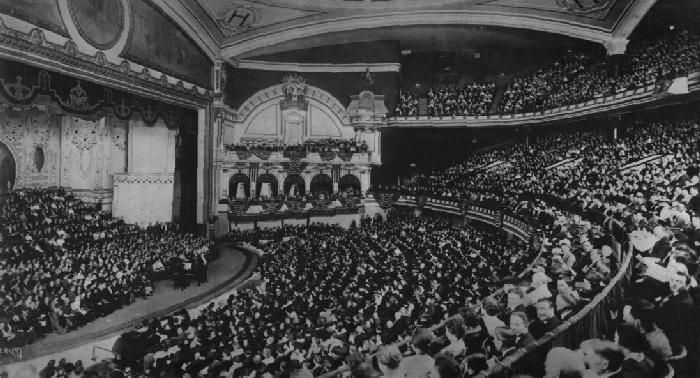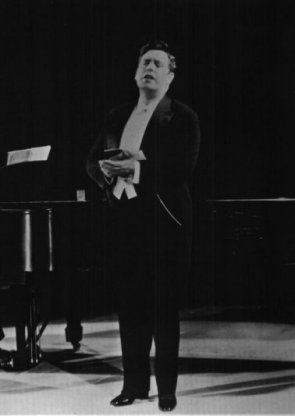Singing for the Red Cross 1918 ![]()
McCormack
in Berlin 1923
------------------------------
The Stage
Irishman Controversy at St Louis Exhibition 1904
--------------------------------------
Victor Advertisement![]()
--------------------------
A McCormack Fan Remembers![]()
----------------------------
The Pop Fan of Yesteryear![]()

Bruno Walter
and John McCormack
McCormack takes Berlin by Storm
Programme May 2 1923
Reviews of John McCormack's appearances with the Berlin Philharmonic under Bruno Walter and his song recital at the Philharmonie

Bruno Walter and John McCormack
Berlin, 28 April
1923. A demonstration that reminded one of American political
conventions greeted Bruno Walter on his return from America to conduct the
last of his series of Philharmonic concerts. Those who have held right along
that he is the legitimate successor of Artur Nikisch and therefore ought to
have been enthroned in his place seem to have had new wind put into their
sails by his American success. At any rate, the quality of his reception was
determined not merely by admiration but by love. And never has a conductor
shown himself more worthy of popular affection. He has grown in recent years
into an ideal interpreter of just those composers who make up the national
musical treasure house. But, even in his presentation of the classics he is
a romanticist, warmhearted, intoxicated by his own vision of beauty. Where
Furtwaengler analyzes, constructs with imposing intellectual force, Walter
idealizes, and in this respect he is undoubtedly closer to Nikisch.
And yet it is clear. The Brahms D major symphony he directed with a mastery
of dynamic proportions that revealed its beauties to an unprecedented degree,
and never- - no, never--have I heard the Meistersinger prelude so compellingly
played. The philharmonic Orchestra went beyond itself in this and also in
Strauss's Don Juan. Since Nikisch no conductor has been acclaimed as Walter
was after this concert.
As already stated in a cable dispatch to the Musical Courier, John McCormack made his German debut at this concert. He sang a rather ungrateful Mozart aria, Per pieta non ricercate, in rondo-form, and the great tenor aria from Christ on the Mount of Olives, by Beethoven. If the reputation that preceded him was the usual one of his being a "popular" singer, who with Irish ditties wrings easy tears from Irish eyes,the public must have been amazed. For what he sang was calculated to capture the musical highbrows, and it did, without qualifications. But the intelligent Berlin public, too(and the Bruno Walter public is very intelligent) immediately grasped the fact that John McCormack is a very great artist, a musician of high rank, whose every phrase was chilled and polished with the intuitive infallibility of the born interpreter. His Beethoven, sung in German, mind you- - German that one could understand to the last row- - was so profound and emotional utterance that even the unreligious must have been moved. The thought was irresistible that John McCormack would be an ideal Evangelist in the St. Matthew's Passion of Bach.
John McCormack was recalled a number of times after each number,
both at the public rehearsal and the concert, and his song recital, announced
for next week, is sure to be sold out.
[Cesar Saerchinger] [Concerts of April
22 and 23, 1923] (Musical Courier 17 May 1923)
John McCormack Takes German
Capital By Storm
